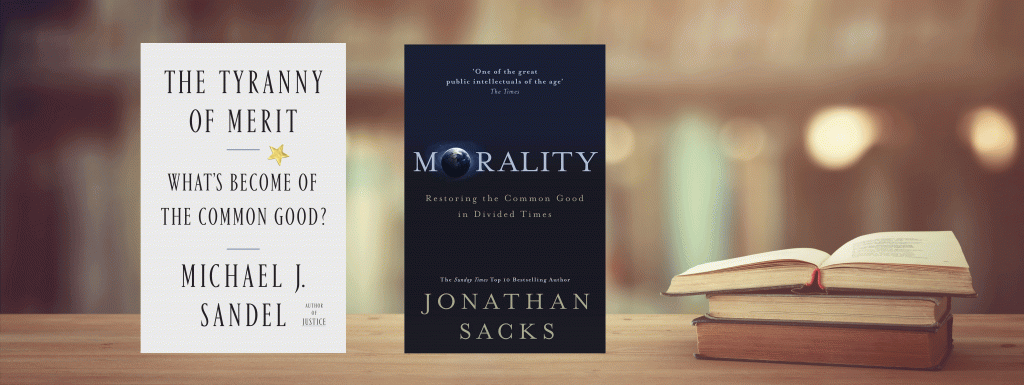
Diversity is beautiful!
Nature shows us that every creature is unique. All creatures flourish in their own unique ways. When we see a field of wild flowers, we are impressed by a broad gamut of colours and beauty. Diversity is necessary to maintain complex ecosystems. What we often do not notice, however, is the common ground that underlies and nourishes this diversity.
The word “common”
I love the English word “common”. Other languages do not have such a versatile term for things we have in common. Historically the commons are the natural and cultural resources that are freely accessible to all members of a society. Common is also used in Commonwealth and all people with a healthy mind are able to use their common sense.
In fact, I see the Gamma Tao as just a common sense philosophy of life. It offers a common ground of basic human values that everyone can observe and practice, without the need of a teacher or guru.
Two new books on the common good

Recently I read two interesting new books that in different ways addressed the importance of the common good: Morality: Restoring the Common Good in Divided Times by Jonathan Sachs and The Tyranny of Merit. What’s Become of the Common Good by Michael J. Sandel.
Morality by Jonathan Sacks
Jonathan Sacks is a British orthodox rabbi, a public intellectual and author of many books. Sacks states that we live in an age of cultural climate change. In order to restore the common good, we cannot leave this to politics or the economy. We need “morality, a concern for the welfare of others, an active commitment to justice and compassion, a willingness to ask not just what is good for me but what is good for all-of-us-together. It is about ‘Us’ not ‘Me’, about ‘We’, not ‘I’”.
Chapter after chapter Sachs describes the perils of our times, such as unsocial media, identity politics, post-truth, public shaming and the lack of civility. His picture may seem a bit conservative and biased against the prevailing culture of individualism, but this is not a book of contemporary history.
As you may expect from a religious thought leader, this book is more like an extended sermon, a modern sermon, not backed up by traditional biblical quotes, but by recent insights and cases from many non-fiction books and scientific studies.
Wise elder
Reading Morality is like listening to a wise elder. We may not agree with everything the rabbi says. He may even come from another tradition than our own, but that should not make us blind for his perspective, stop listening or pick out and magnify the points we disagree with, as happens so often nowadays. On the contrary. That would go against everything Sacks stands for and writes about in this book.
Rabbi Sachs is a courageous and at the same time courteous debater himself, as he we can see here in his debate with the famous atheist scientist Richard Dawkins.
If you are planning to watch this video, please note that at 39:45 minutes into the debate there is a special moment, when the host asks the two debaters for points of agreement. She asks whether the rabbi and the atheist do have some common ground.
I think it would be great if questions like this one were asked more often during a debate, because it may cause debaters to take a new constructive perspective.
The kind of common ground Sachs tries to promote in Morality is not political, but a convenant between active citizens sharing collective responsibility.
“Convenant is what we have in common despite our differences”.
The Tyranny of Merit
Michael J. Sandel is one of the most popular philosophers of our times. His lectures in the form of Socratic dialogues attract millions of viewers all around the world.
In his latest book The Tyranny of Merit. What’s Become of the Common Good he shows how successful people who flourish in modern meritocratic societies come to believe that their success is all their own doing. They fail to understand how much of their success depended on favourable circumstances, unfair opportunities and often pure luck.
This “meritocratic hubris”, as he calls this attitude, produces deeply divided societies of “winners” and “losers” in which the losers seem to have no one to blame but themselves.
Sandel summarises the central argument of his book in this recent TED talk.
Sandel recommends to renew the dignity of work by acknowledging the important contributions workers without a college degree are making to the common good of modern societies.
The present pandemic is also giving us a new perspective on what kind of work is really essential in our societies.
Nurturing common ground
The books of Jonathan Sacks and Michael J. Sandel contain important advice on how to start mending the strong divisions in modern societies and how to focus on the common good.
If we want a human society to flourish in all its diversity, we should never forget to nurture our common ground.